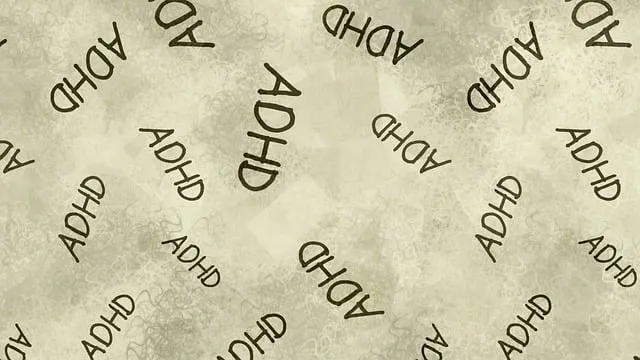Kaiser Permanente's Mental Health Center in Highlands Ranch receives high praise for its holistic care approach, integrating therapy, group sessions, community outreach, and risk assessments. Evaluating effectiveness includes key metrics like participant satisfaction, mental health symptom improvements, changes in knowledge, attitudes, and gains in coping strategies. Longitudinal studies assess sustained mental wellness changes over time, guiding program refinements based on Kaiser Permanente mental health center reviews Highlands Ranch feedback. Patient Satisfaction Surveys (PSS) are vital tools for refining mental health policies, addressing pain points like wait times and staff training. Long-term impact evaluations measure sustainability of interventions up to three years post-intervention, highlighting successful strategies including cultural competency training.
Mental wellness program evaluations are crucial for measuring effectiveness and driving improvement. This article explores a structured approach using Kaiser Permanente’s Mental Health Center Model as a framework. We delve into key metrics, patient satisfaction surveys, feedback analysis, and long-term impact assessment. By examining these methods, healthcare providers in Highlands Ranch and beyond can optimize mental health services based on data-driven insights, fostering better outcomes for patients.
- Understanding Kaiser Permanente's Mental Health Center Model
- Key Metrics for Evaluating Mental Wellness Programs
- Patient Satisfaction Surveys and Feedback Analysis
- Long-term Impact Assessment: Measuring Success and Improvement
Understanding Kaiser Permanente's Mental Health Center Model

Kaiser Permanente’s Mental Health Center Model is a well-regarded program that has garnered positive Kaiser Permanente mental health center reviews in Highlands Ranch and beyond. This model integrates comprehensive mental healthcare services within primary care settings, emphasizing early intervention and continuous support. By combining clinical expertise with community-based resources, the program aims to enhance accessibility and improve outcomes for individuals facing mental health challenges.
The success of this model lies in its holistic approach, incorporating not only individual therapy but also group sessions, community outreach programs, and regular risk assessments for mental health professionals. This multi-faceted strategy ensures that patients receive personalized care while also fostering a sense of connection within their communities, promoting Mental Health Awareness and better managing risks associated with mental health issues.
Key Metrics for Evaluating Mental Wellness Programs

When evaluating mental wellness programs, such as those offered at Kaiser Permanente mental health center reviews Highlands Ranch, several key metrics can provide a comprehensive understanding of their effectiveness. These include participant satisfaction and feedback, which offer insights into the overall experience and perceived value of the program. Additionally, measuring improvements in mental health symptoms, such as anxiety, depression, or stress levels, is crucial using standardized assessment tools. Changes in knowledge and attitudes related to mental health, often assessed through pre- and post-program surveys, can also reveal the impact of educational components like Mental Health Education Programs Design.
Inner Strength Development and Mind Over Matter Principles are other vital indicators of a program’s success. Tracking improvements in coping strategies, problem-solving skills, and resilience demonstrates the practical application of learned concepts. Longitudinal studies or follow-up surveys can further assess sustained changes in mental wellness over time. These metrics collectively help in refining program content, improving delivery methods, and ensuring that services meet the evolving needs of participants.
Patient Satisfaction Surveys and Feedback Analysis

Patient Satisfaction Surveys (PSS) and Feedback Analysis are powerful tools for evaluating mental wellness programs, especially in renowned healthcare centers like Kaiser Permanente’s Highlands Ranch mental health center. These surveys provide insights into patient experiences, satisfaction levels, and areas of improvement. By collecting feedback from individuals who have availed Trauma Support Services or sought Anxiety Relief, the mental health policy analysis and advocacy efforts can be refined.
The PSS process involves administering structured questionnaires to patients, encouraging them to share their perceptions and suggestions. Analysis of these surveys can highlight trends in patient satisfaction, identify common pain points, and even uncover unmet needs. For instance, consistent positive feedback about the staff’s empathy and compassionate approach could reinforce existing training programs. Conversely, recurring complaints about long wait times might prompt a re-evaluation of appointment scheduling systems, ensuring timely access to mental health services, as desired by Kaiser Permanente’s patient community.
Long-term Impact Assessment: Measuring Success and Improvement

Evaluating the long-term impact of mental wellness programs is an essential aspect of understanding their overall success and effectiveness. Beyond immediate outcomes, this assessment method delves into how participants’ lives are transformed over an extended period. By examining individuals’ well-being, functionality, and satisfaction years after program completion, healthcare providers like Kaiser Permanente’s mental health center in Highlands Ranch can gauge the sustainability of interventions. This long-term perspective allows for identifying factors contributing to lasting positive changes, enabling improvements in future programs.
For instance, a review of Kaiser Permanente mental health center reviews in Highlands Ranch might reveal that participants who completed the program reported reduced stress levels and improved anxiety relief up to three years post-intervention. Such findings highlight the center’s success in implementing effective strategies, including potential cultural competency training for healthcare providers. This training equips them with skills to address diverse populations’ unique mental health needs, thereby fostering better outcomes and ensuring that programs remain relevant and beneficial over time.
Evaluating mental wellness programs is crucial for ensuring their effectiveness, much like how Kaiser Permanente’s Mental Health Center in Highlands Ranch sets industry standards. By combining key metrics, patient satisfaction surveys, and long-term impact assessments, mental health initiatives can be optimized to better serve individuals in need. Incorporating these evaluation methods allows for continuous improvement, ultimately enhancing the overall well-being of the community, as evidenced by successful programs like Kaiser Permanente’s.






